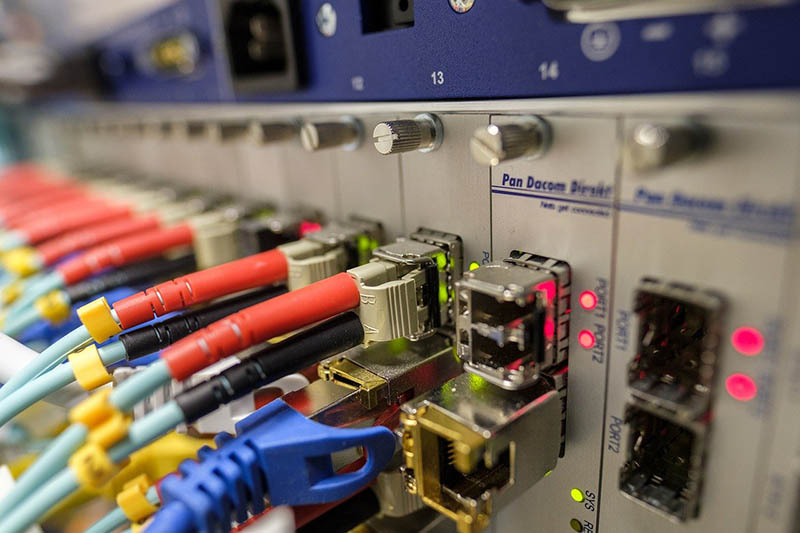Fiber internet service was up and running early today after nearly three months of overnight shutdowns by the military.
The apparent restoration of the service, which has gone dark from 1am to 9am since mid-February, comes as mobile phones remain cut off from the net and social media platforms blocked.
The move was first reported on Twitter by journalist Cape Diamond and suspicious social media users quickly voiced concerns over the return of limited access, saying they didn’t trust anything the junta did.
The bans on mobile data, public Wi-Fi and wireless broadband internet remain in place, ostensibly in an attempt to control – or at least limit – the flow of information.
Social media sites such as Facebook, which removed Tatmadaw-related accounts after the coup, including Whatsapp, Instagram and Twitter remain blocked as well.
Those who saw it as an attempt to mollify the public weren’t receptive to the gesture.
“There’s no need to thank them. We have our right to full internet access restored,” wrote Facebooker Sandar Myo Thant
“We are not asking for the internet now, we are defeating a dictator,” was among messages circulating through social media in response.
The return of fiber internet was confirmed by internet watchdog Netblocks, which has closely monitored Myanmar’s cuts and blackouts since February.
ℹ️ Live network data indicate fixed-line/fiber internet service remains largely available in #Myanmar after 1 am Wednesday, the first time after 72 nights of near-total shutdowns. However mobile data remains cut and platforms are heavily restricted.
📰https://t.co/Jgc20OBk27 pic.twitter.com/hB7YNO4zNC
— NetBlocks (@netblocks) April 27, 2021
Fiber internet represents a tiny fraction of Myanmar’s internet users, as the expense makes it an unaffordable privilege to most people, who rely instead on broadband and mobile data to access news, entertainment, social media and employment.
Myanmar’s nascent digital economy has taken a massive hit in the wake of the blackouts and is believed to have wiped out thousands of small online businesses that relied on social media and digital access to reach their customers. Food delivery workers; relying on applications like GrabFood, Foodpanda and Door2Door; lost their livelihoods overnight.
Please give us your money
Combined with the shutdown of commercial finance by widespread protests and the civil-disobedience campaign, it has all added up to a grievous blow to the economy.
On Tuesday, the junta-controlled central bank pleaded with people to deposit money at the Central Bank of Myanmar.
“The public will be allowed to open new bank accounts from May 3 if they want to deposit cash in banks for the security of cash on hand,” it said in a statement. “If you want to withdraw cash from the new bank account, you will be allowed to withdraw money without any restrictions on the amount deposited.”
It’s the only bank now offering full services as staff at other institutions have refused to work since the Feb. 1 coup d’etat.
Staffing shortages have kept other banks from opening full time, despite a central bank threat to take action if they did not reopen in March. The shutdown of financial services has delayed domestic and foreign trade, according to the central bank.
There was a run on the banks after the military takeover, leading to withdrawal limits being imposed. The bank also said those who open accounts by Monday won’t be exempt from those restrictions.
The offer was received skeptically by those who saw it as a ploy by a cash-starved system.
“We are not that stupid anymore. They don’t even have money to give us from our remaining accounts. They are lacking cash now,” 29-year-old bartender Aung Htet told Coconuts.
“It’s like they are letting everyone know they have run out of cash,” travel agent Sandar Win said, mockingly.
Lifting the communications lid may be essential to any hope of staunching self-inflicted economic wounds.
Shutting down the internet is a weapon the Tatmadaw has used before. Prior to the coup, it was behind the world’s longest and ongoing internet shutdown in Rakhine and Chin states due to armed conflicts that began mid-2019. More than a million people were plunged into digital darkness, impeding communications, aid distribution and reporting on ongoing war crimes. One year after the shutdown began, some were even unaware of the global COVID-19 pandemic.




